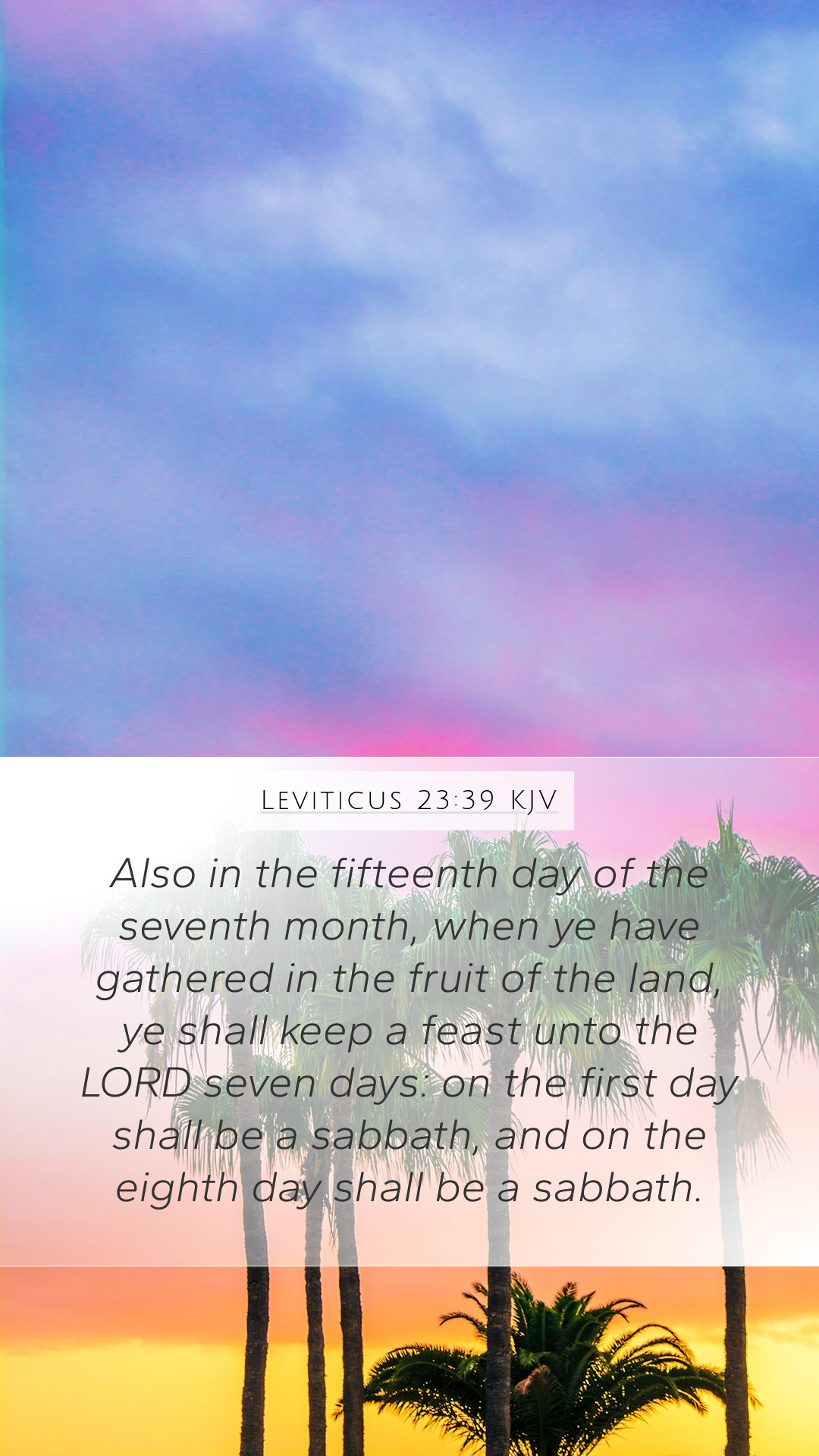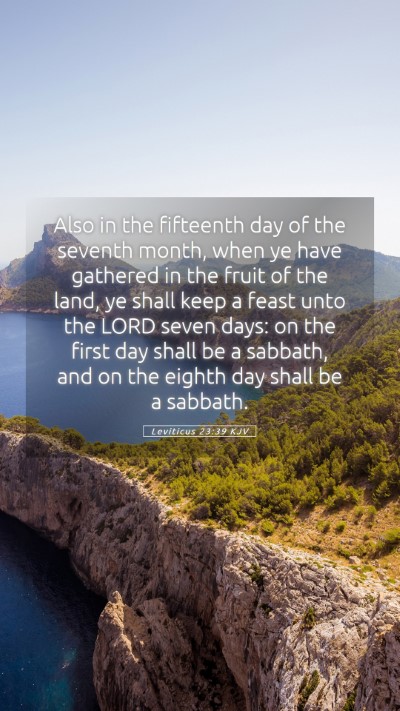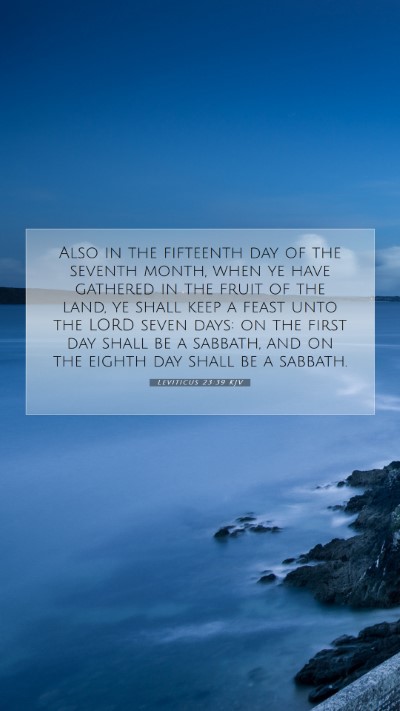Understanding Leviticus 23:39
Leviticus 23:39 states: "Also on the fifteenth day of the seventh month, when you have gathered in the fruit of the land, you shall keep the feast of the Lord for seven days; on the first day there shall be a solemn rest, and on the eighth day, a solemn rest."
Bible Verse Meanings
This verse is part of the instructions for the Feast of Tabernacles (Sukkot), a significant festival in the Jewish tradition. It emphasizes the importance of setting aside time to celebrate God's provision during the harvest season.
Bible Verse Interpretations
- Matthew Henry's Commentary: This passage highlights the command from God to celebrate His goodness, particularly in relation to the harvest. Henry points out that this feast serves as a reminder of God's blessings and the sustenance He provides.
- Albert Barnes' Notes: Barnes elaborates that the Feast of Tabernacles represents a time of joy and thanksgiving for the fruits of the land. It signifies both physical harvest and spiritual reflection, emphasizing community worship and fellowship.
- Adam Clarke's Commentary: Clarke notes that the fifteenth day of the seventh month corresponds with the final stage of the harvest season. He argues that the call for rest and solemnity underscores the importance of diverting attention from daily activities to focus on gratitude towards God.
Bible Verse Understanding
Understanding Leviticus 23:39 requires recognition of its historical context as well as its spiritual implications. It encourages believers to celebrate God’s provision while fostering community and worship.
Bible Verse Explanations
- This verse serves as a reminder of the cyclical nature of life and the importance of acknowledging divine grace during harvest times.
- The duration of the feast—seven days—indicates completeness in God's creation, echoing the biblical theme of completion found throughout Scripture.
- The mention of rest highlights the importance of Sabbath observance, a recurring theme in the Torah that emphasizes spiritual renewal.
Commentary Summary
In summary, Leviticus 23:39 encapsulates themes of gratitude, community, and divine provision. The observance of this feast is not merely a tradition, but a vital practice that underscores the relationship between the people and their God.
Scripture Analysis
This passage invites deeper analysis regarding its implications on modern Christian observance of rest and gratitude. By studying the principles behind this Old Testament command, believers can derive valuable lessons for contemporary worship practices.
Bible Study Insights
- Applying the Principles: Modern readers can learn the importance of dedicating time to thankfulness and community celebrating their blessings.
- Historical Context: Understanding the Israelites' agrarian lifestyle helps to appreciate the significance of harvest festivals in their society.
Related Bible Cross References
- Exodus 23:16: Discusses the Feast of Harvest and its significance.
- Deuteronomy 16:13-15: Provides additional instructions on the Feast of Tabernacles.
- John 7:2: Refers to the Feast of Tabernacles, illustrating its importance during Jesus' ministry.
Conclusion
Leviticus 23:39 serves not only as a historical directive for the Israelites but as a timeless call for believers to engage in practices of gratitude, community, and spiritual reflection.


